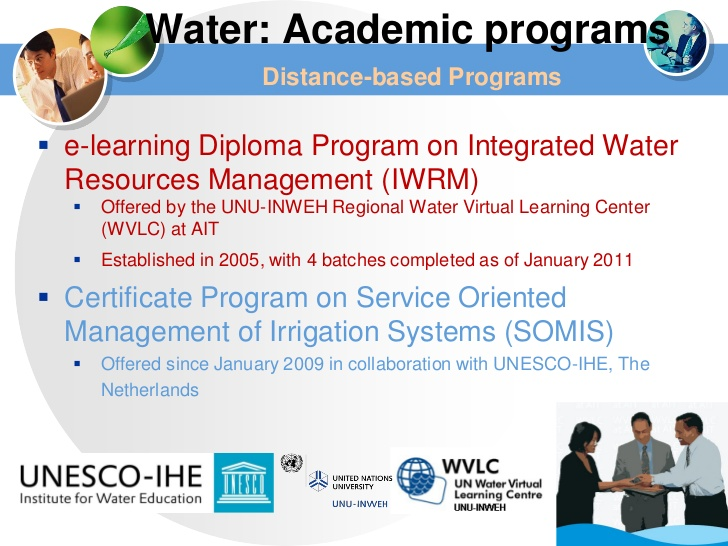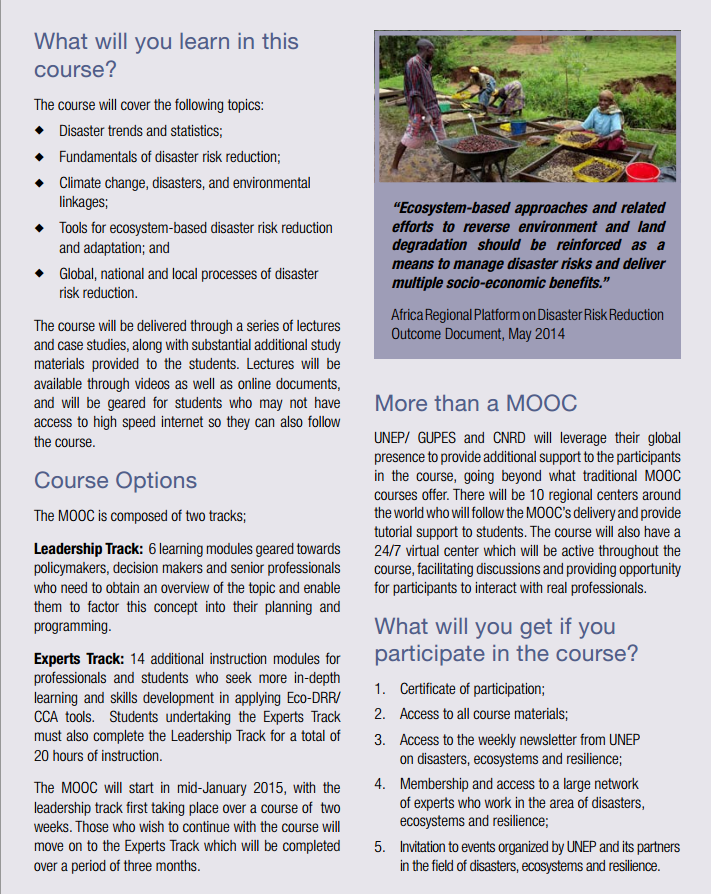Distance Learning
Author: Arnold Nagy, Central European University (Budapest, Hungary)
The incredible progress in information sharing and Internet networking recorded over the past couple of decades has set the foundation for the growth of distance learning. ICTs support structured distance learning programs through online communication (videoconferencing, electronic forums, e-mail, bulletin boards, instant messaging) which can create a virtual learning experience that is comparable to traditional education. In addition, a distance learning platform has several benefits:
- Favors mobility: distance learning programs can be completed from virtually any location which allows access to the computer-based training (CBT) system.
- Can typically be customized to suit the needs/requirements of those interested.
- Specialized distance learning education can help environmental practitioners reinforce or expand required skill sets.
- Fosters networking between involved students/professionals, irrespective of their location.
- An increasing number of accredited educational/training institutions are offering distance learning programs in water management.

Figure 1. A UNESCO-IHE Institute for Water Education distance learning program for integrated water resource management. Source: http://www.slideshare.net/globalwaterpartnership/toolbox-asian-institute...
A particularly interesting development in distance education has been the rapid growth of massive open online courses (MOOC). These allow virtually unlimited participation via dedicated web portals, and combine educational materials (video lectures, problem solving, feedback and online assessment) with a framework for community interaction. A large number of academic institutions and international organizations offer training via MOOCs. Initially centered on the idea of open education and shared resources, MOOCs have quickly diversified from providing open access to unlicensed material to fully accredited graduate level academic programs.
The explosive popularity of this distance learning tool created the possibility for the creation of truly innovative MOOCs, providing insights and up-to-date information on specialized topics in a more dynamic and interactive way than traditional educational systems. Among such innovative MOOCs we can mention those covering water resources management and connecting issues. Some are centered on high-interest environmental issues that also impact water resources (Figure 2), such as climate change, disaster risk reduction, and ecosystem management. Others focus on particular aspects of water resources management. MOOCs covering technology and methods (e.g. GIS, remote sensing, other technologies presented in this training manual) are also available and could be equally useful. Lists of ongoing and upcoming MOOCs are published by the institutions involved; see for example the list maintained by UNEP’s Environment and Education Training Unit (EETU) at: http://www.unep.org/training/news_events/MOOCs.asp, or aggregators (directories) of MOOCs offered by different providers (example: https://www.mooc-list.com/).

Figure 2. Excerpt from an info brochure for a MOOC on “Disasters and Ecosystems: Resilience in a Changing Climate”, developed by UNEP, through its Global Universities Partnership on Environment for Sustainability (GUPES) and the Cologne University of Applied Sciences. Source: http://www.unep.org/training/docs/MOOC_student_info_brochure.pdf
